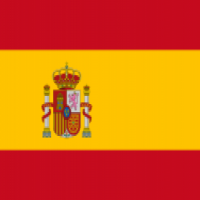Summary:
A Spanish SME from the Basque Country is looking for field testing environments to bring its patient relation management system to the next level. This process automation company specialized in electronic devices looks for hospitals, elderly care centres, clinics or ambulance service providers to make its accurate biometric identification software system fully operational under a research or cooperation agreement.
Description:
Every year misidentification errors lead to lots of deaths around the world which also cost lots of billion to health entities. The existing solutions to face this problem are not enough for the moment so the Basque SME invested in the development of an advanced system able to combine usefulness and precision. Such system is a biometric scanner that helps to identify people by their fingerprint. This scanner´s quality and feasibility has been certified by a well-known US governmental agency and it’s able to scan fingerprints in any circumstances, such as wet or bloody skin. In addition, they are also able to detect fake fingerprints. Once the health staff professionals scan the patient´s fingerprints with such device, the artificial intelligence algorithm creates a patron based on the captured fingerprints’ measures. This patron is then encrypted into an alphanumeric code, where compliance with GPDR is ensured. Finally, the patron is stored in the database. The information is stored in several servers simultaneously so if there’s a capacity, accessibility or load stress problem in one of them, the system will have access to the information in another server.
However, the basic concept, the technology and the final user approach require validation in order to prove real capabilities and its fully adaptable features. In light of this, regarding the hardware, two different systems can be tested and validated. The static, which works plugged with an USB connection to the computer, can be the appropriate tool for hospitals. On the other hand, there’s a rugged tablet that incorporates a LES (Light Emitting Sensor) and a rugged protection (water/dust proof). This can be the right device to be used in ambulances.
As far as the software is concerned, what the company requires to test is a completely personalized program to storage all the patient´s data (clinical record, operation photos…). The software is multi-platform meaning it can be used in different devices, such as smartphones, tablets & computers.
The main advantages of this technology in comparison with health cards or bracelets are the following ones:
• Identification is easier and errors are minimized.
• Information can be extrapolated to other health entities.
• The patient always has it.
• It does not give relevant information about the patient
The Basque hardware and software company thinks all these advantages will make a huge improvement in different critical zones at hospitals like for example, operating rooms, blood transfusions and many others.
The company’s goal now is therefore to find partners, performing with them field tests under real conditions to ensure the technology is totally trustworthy and to test it for some of the extreme and challenging situations like for instance with damaged fingerprints.
To carry out such a validation, the following is required:
• 10 to 20 nurses & doctors
• 10 statics & 2 tablets will be provided by the company
• 30 minutes training for the learning of the fingerprint device and the UX of the program
Finally, the team is composed of 10 motivated innovative technicians in the field of Biotech, IoT (Internet of things), Artificial Intelligence, open source and business administration. They are looking for early adopters such as hospitals, elderly care centres, clinics, clinical training centres and ambulance service providers (either public or private) to sign with them a technical cooperation agreement or a research cooperation agreement.
Type (e.g. company, R&D institution…), field of industry and Role of Partner Sought:
The partner sought has to be either public or private hospitals, elderly care centres, clinics, clinical training centres or ambulance service providers that are struggling with patient identification errors. The role would be to define requirements, run a validation process and extract conclusions. Therefore, partners will have to perform field tests under real conditions to ensure the technology is totally trustworthy and to test it for some of the extreme and challenging situations like for instance with damaged fingerprints. To carry out such a validation, the following is required under a research or technical cooperation agreement:
• 10 to 20 nurses & doctors
• 10 statics & 2 tablets will be provided by the company
• 30 minutes training for the learning of the fingerprint device and the UX of the program
Technical Specification or Expertise Sought:
Preferable partners would be health institutions who already have methods in place like health cards or bracelets along with some kind of software management system for its operation. The communication system must be able to support multi-platform and multi-device configuration. The partner has to be interested in developing an innovative identification system.
Stage of Development:
Available for demonstration
IPR Status:
Patent(s) applied for but not yet granted
External code:
TRES20200605001








